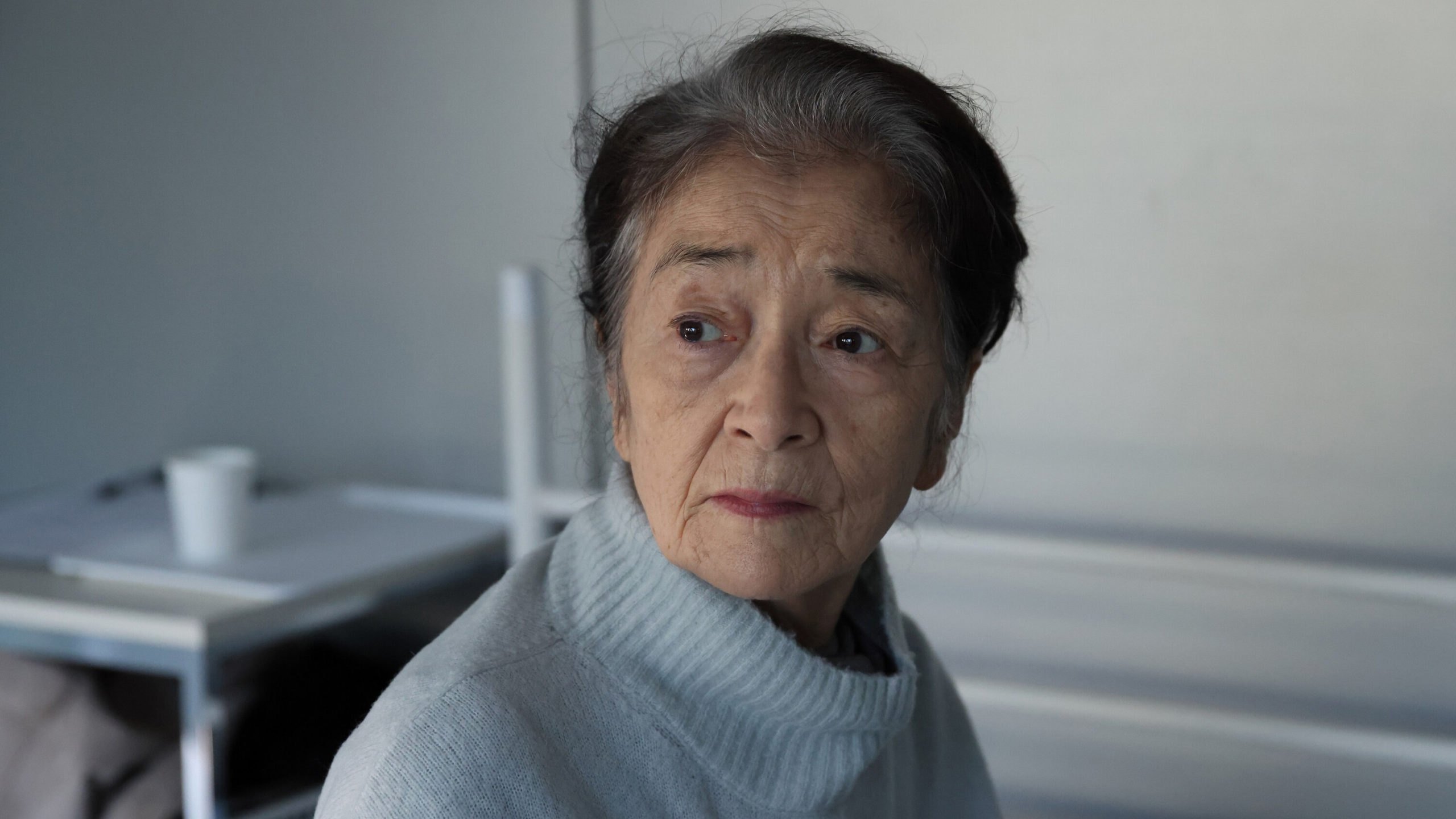
Plan 75 Review: Japan Suffers Existential Crises in Engrossing, Plausible Dystopia
In Plan 75, Japan suffers two existential crises: the very real economic and societal strains of its aging population and, worse yet, a severe loss of empathy. It’s set in an alternative present where older people are at best ostracised from society; at worst they’re targets of violent hate crimes. Grasping for a solution, or perhaps eyeing a nefarious opportunity, the government introduces a voluntary euthanasia program.
The director of this engrossing, chilling, depressingly plausible dystopia is Chie Hayakawa, a first-time filmmaker from Tokyo who got a special mention from Rossy de Palma’s Un Certain Regard jury in Cannes last summer. Expanding on her 2018 short of the same name, Plan 75 is both compelling and overstuffed. Hayakawa splits her story into four perspectives, though I’d wager any two might have done the trick. The best protagonist is Michi (Chieko Baisho), a seemingly single and childless woman of 81 who, with bills piling up, scarce chance of an income outside her tasks as a cleaning lady, and a gaggle of friends who keep dropping off, starts seeing the government’s “Plan” as her only way out. She finds an unlikely confidante in a young woman working at the Plan 75 call center whose job it is to smile and keep volunteers from having second thoughts. They go bowling. Michi offers her some money (volunteers to Plan 75 are given a hilarious $1,000). Contrary to company policy, the two women form a bond.
Like any piece of speculative fiction worth its salt, Plan 75 plucks its most affecting ideas from our worst contemporary fears––namely the slippery slide toward fascism, or perhaps the realization that we’re already there. In this sense Hayakawa’s film is much closer to something like Battle Royale than, say, Amour, which was more about the callous whims of a disinterested state than the peaks and troughs of old age (though I feel it could do with a little more of the latter). Hayakawa was inspired by a massacre that happened in Sagamihara in 2016, when an ex-worker from a care home for the mentally and intellectually disabled stabbed 19 patients to death in their own beds. The man believed he was doing a public service. Plan 75 opens on a similar atrocity and imagines the path a country might take afterward, not least one with the fastest-aging population and a younger generation left to carry the financial burden.
The idea that a society could come to accept such a nightmare, or at least wilfully ignore it, is spelled out in two additional, rather Arendtian storylines. In one, a Filipina nurse takes a job at the clinic sorting through the belongings of recently 75ed volunteers (a macabre echo of the Sondercommando unit that is somewhat undercut by the character’s underexplored motivation). The fourth plot line follows Hiromu (Hayato Isomura), a benign government stooge tasked with signing up new volunteers. Earnest to a fault, he even attempts to convince his own uncle to consider the procedure, a process that eventually leads to a change of heart. Thankfully, no high-level meetings happen on screen, though rumors circulate that officials are planning to introduce a Plan 65. If there has been any public outcry, it is only hinted at in passing. There are, after all, just so many hours in the day.
That smorgasbord structure often leaves Plan 75 feeling overstretched. The more fleshed-out narratives have a way of making the others seem underwritten––in both cases you’re left wanting more––and for all its justifiable anger and uncertainty, it is cold and clinical to the touch. Still, there are things to cherish: busily moving between sterile offices and boxy, lived-in apartments, the film keeps you guessing about the practicalities and implications of its central conceit to such an extent that its moments of real poignancy can catch you off guard. A lot of this comes down to Baisho’s heartbreaking central performance. Both a regular player in Yoji Yamada’s films in the ‘60s and ‘70s and a popular singer in Japan (her 1965 hit Sayonara wa dance atoni inspired the theme for Sailor Moon), the octogenarian is Plan 75’s secret weapon. Hakayawa knows it. The director has her star sing on not one but two occasions, and even if the latter lands awkwardly, these moments are exactly what Plan 75 needs: reminders of what makes life worth living in the first place.
Plan 75 is now in limited release and will expand.
Grade: B














